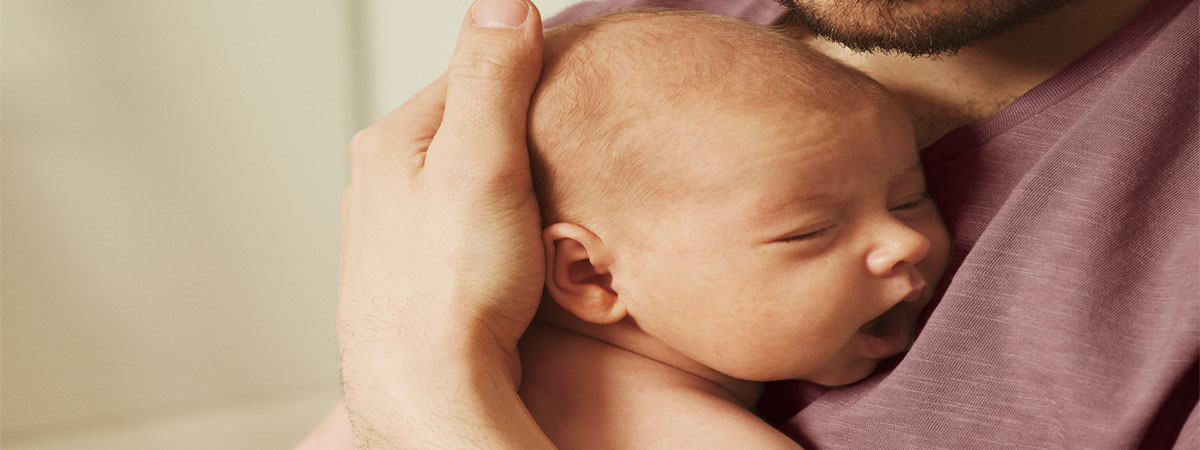Constipation in babies and children
Constipation is common for little ones, and it’s no fun at all. Not only can it be quite painful; it can also make the baby feel anxious and sad. Read on for tips and advice to help a constipated baby.
Constipation can happen for a few reasons, and often occurs in conjunction with some kind of a change. Maybe the baby just transitioned from breastmilk to solid foods; maybe they won’t be using a pacifier anymore; maybe they’re starting preschool. Constipation can also be caused by sensitivity to a certain kind of food or formula. Babies who only breastfeed very rarely become constipated.
Symptoms of constipation in babies
- The baby doesn’t want to eat, is fussier than usual, and occasionally has a tense belly.
- The baby has to strain to poo.
- It seems painful and the baby is upset when trying to poo. There may also be small cracks around the rectum which might bleed and cause discomfort.
- The baby leaks runny stool. That might sound a bit contradictory, but it’s because there is a hard lump of stool in the rectum and some faeces may leak past it. This is called constipation diarrhoea.
- The baby isn’t pooing as often as usual, and more irregularly. Rather than trying to monitor how often it is normal to poo, follow the baby’s routines: this can be highly individual and may be determined to some extent by what they have eaten.
- The baby may feel sick and even throw up if they have been constipated for a long time.
What to do if your baby is constipated
A good rule of thumb is to make sure the baby gets enough fluids and moves around. In addition to the fact that drinking fluids will soften the stool and make it easier to pass, constipation can lead to loss of fluids in little ones – which is why it’s important to offer them plenty to drink. You can also try the following:
- Massaging the baby’s belly softly and gently, using clockwise circular motions – if the baby seems to like it, that is. You can also place the baby on their back and gently move their legs in a cycling motion.
- Giving the baby a warm bath and massaging their belly while they’re in the tub. Here, too, it’s important that the baby shows that this feels good.
- Try getting baby to poo by holding them upright, or placing them on their back, and gently bending their knees up to their chest a few times. If this seems to be causing pain, then stop.
- If your infant is constipated from formula, talk to your paediatrician and consider switching to a different brand.
- If the constipation doesn’t pass, there is medicine that can help, so talk to your paediatrician for advice.
Home remedies if your child is constipated:
- Plenty of fluids
- Ripe banana (green bananas can have the opposite effect)
- Prim cheese
- Pear
- Puréed prune
When should you go to the doctor for constipation?
Contact your clinic or seek emergency help, no matter the time of day, if your baby is struggling to poo and has any of the following symptoms:
- The baby vomits.
- The baby has blood and mucus in their stool.
- The baby has significant stomach pain, especially paired with a fever.
- The baby has cold sweats and a tense, distended belly.
- The baby is much more tired than usual and has dry lips.
You can always call your paediatrician or clinic for advice if you’re worried or if the constipation isn’t passing. It’s good to tackle the issue promptly, because it could become a vicious cycle otherwise, leading to the baby being afraid to poo and holding it instead. You should also talk to your doctor if your baby is getting constipated regularly, alternating with diarrhoea, or if baby seems to have frequent stomach pain. Do the same if your baby is breastfeeding, but still has constipation.
In our article on baby poo, you can learn more about different kinds of poo and everything you may be wondering the next time you go to change a nappy.
Please note that all information above is based on Swedish recommendations.



